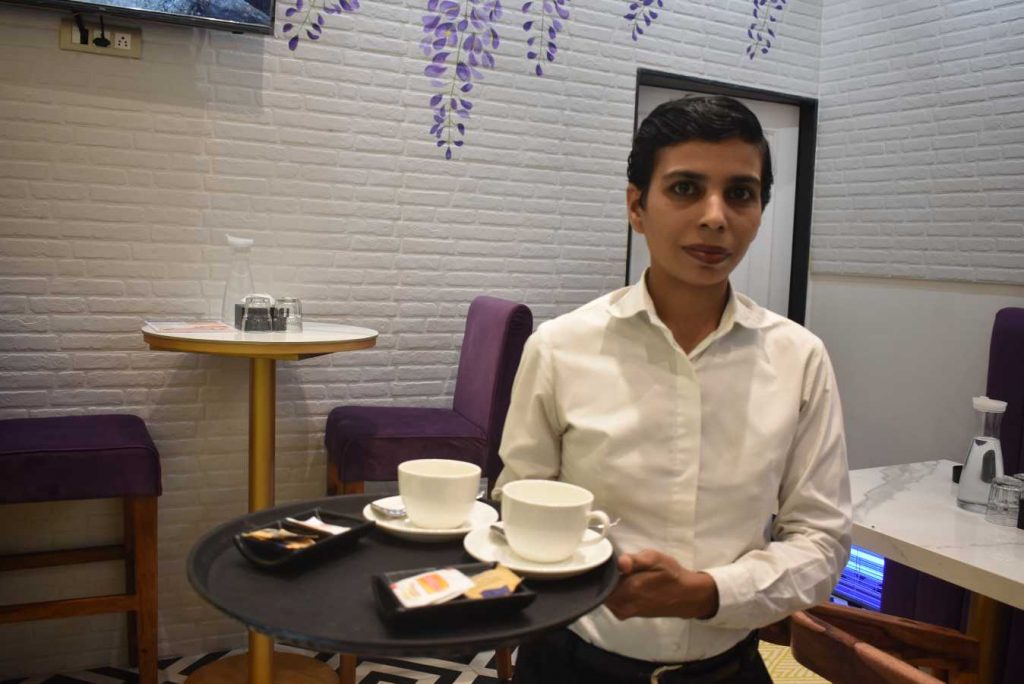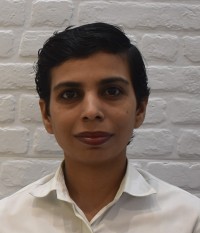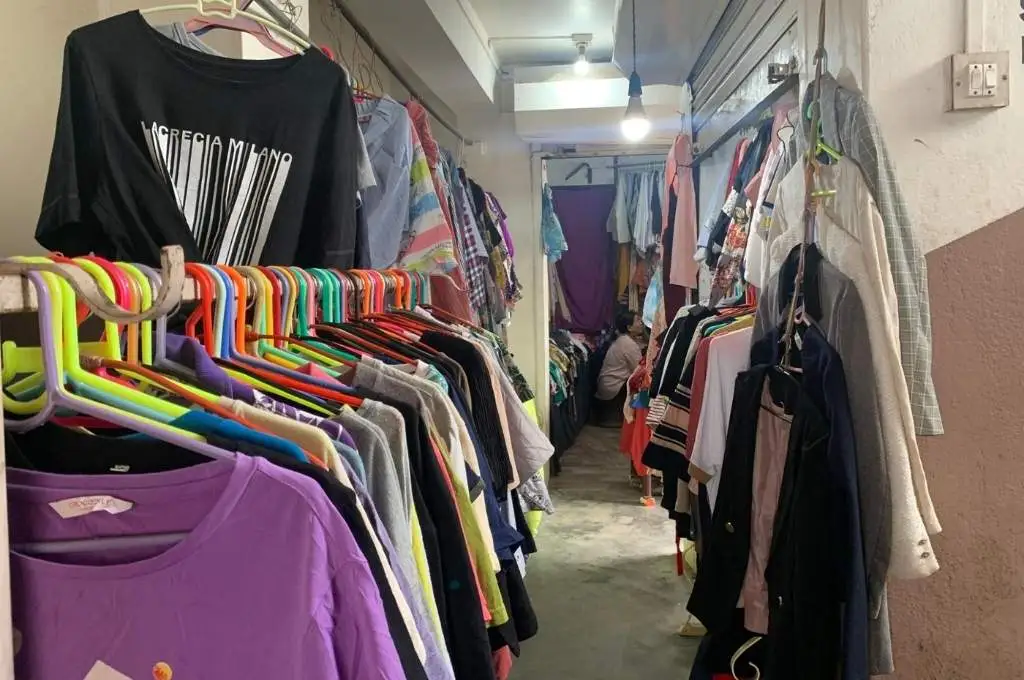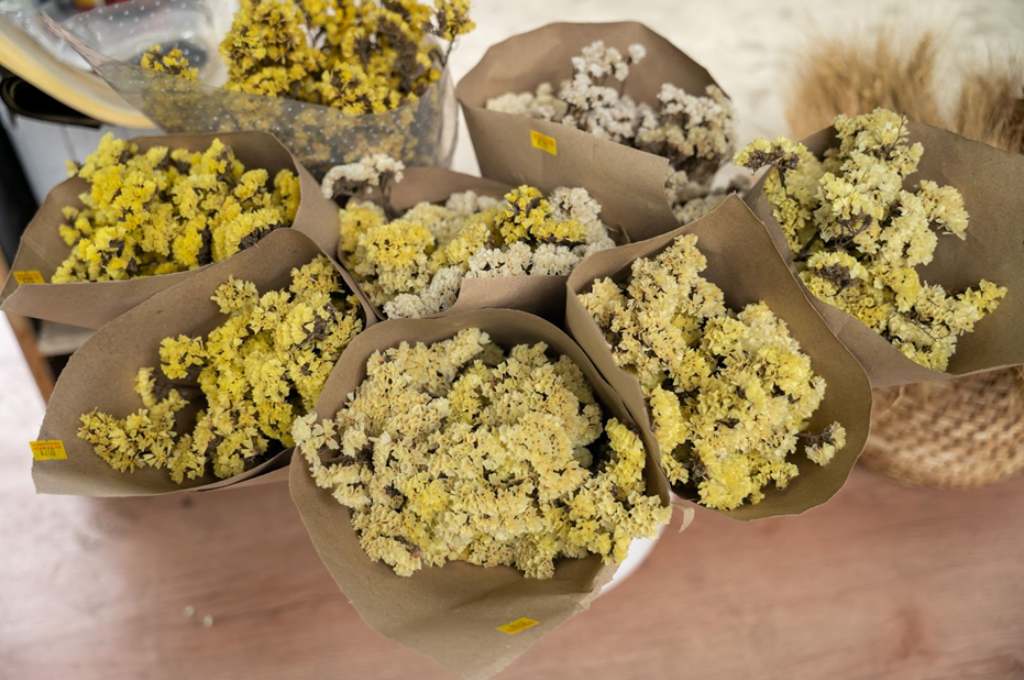My name is Kisni Kale. I’m 29 years old and from Mangrali, a small village in Bhandara district, Maharashtra. I work at Green Olive Resort, Pench, in their hospitality department. I’ve been working here as a Captain for the past three months now. My journey in the hospitality sector started in 2017, when I joined Pratham‘s hospitality programme in Pench. That year, Bharti ma’am from the Pratham team had come to our village to talk about the programme and recruit people who were interested in leaving the village to work. I attended one session where the team explained what training we would receive and what work we would do, and I was interested. Prior to my training, I used to work on my family’s farm and do some tailoring work.
I worked for 12-13 hours a day, but didn’t mind because I wanted to learn something and move ahead in life.
During my two months of training at Pratham, I learned how to comfortably and confidently talk to the guests, how to present myself, and what hospitality aspects like table service and turn down service entailed. My training batch had 20 people in it. Once this was complete, I began to work at the ND Hotel at Chandrapur as a Trainee Steward. During my six months at the hotel, I served food and water, spoke to the guests, and helped with other miscellaneous tasks. As I was still new to the work, I did not take any food orders. At this time, I worked for 12-13 hours a day, but didn’t mind because I wanted to learn something and move ahead in life. Actually, there is a saying in the hotel industry: Aane ka time hai lekin jaane ka time nahi hai. (There’s a fixed time to start the day but no fixed time to end it.)
Other jobs post-ND Hotel gave me experience in managing banquets and running room service. Soon, I was promoted to the post of Senior Captain. In this role, I took food orders, managed staff, and interacted with customers. As a result of this skill set, I was employed at Green Olive Resort as a Captain in 2020.
7.00 AM: Since the pandemic is ongoing, every morning starts with checking all the staff members’ temperatures, and making sure they all have their masks and sanitisers. Once this is done, our day officially starts.
As the Captain, I am in charge of briefing our team of 12-13 stewards. I go over the list of how many guests will be present for breakfast, lunch, and dinner (based on their reservations), what housekeeping and kitchen work needs to be done, and any other scheduled programmes that are planned for the day. Once the team has the rundown, I assign individuals to their tasks.
After our meeting, we begin to prepare for breakfast service. I ask the reception how many people are checking in and checking out on that day. Based on this, we calculate how many people will be arriving for breakfast. Once we have an indicative number, we set up the dining room and inform the kitchen.

11.30 AM: Once the breakfast rush is over, we prepare for lunch. There’s no menu system at lunch (the food is served in a buffet style), and the guests directly come to the banquet hall and eat. As a result, I have to keep a record of how many people come to eat lunch, and which room they are staying in. While keeping count of the guests, I also oversee the work of the stewards and kitchen staff to ensure that the overall lunch service is going smoothly.
While the banquet lunch is ongoing, we have a set of stewards who are assigned to room service. Their job is to ensure that guests choosing to eat lunch in their rooms get their meal in a timely manner. In addition, another set of stewards are in charge of talking to guests about the different packages available at the hotel and answering any questions they may have. I oversee the work that both sets of stewards do.
1.00 PM: While the guests are at lunch or out, we do all the housekeeping work. This includes cleaning the rooms and bathrooms, changing bed sheets and pillow covers, and restocking the room pantry. Due to COVID-19, housekeeping and sanitisation have become even more important. We follow all the COVID-19 protocols issued by the government, including making sure that all staff members are wearing gloves, using sanitiser, and maintaining physical distancing while working.
3.00 PM: We have a daily break between 3 and 7 PM. During this time I have my lunch, go back to my room, and rest. Most importantly, I call my daughter Navya every day at 4 PM. As an eight-year-old living with my parents in the village, Navya knows to expect my call in the afternoon and eagerly waits for it. For about an hour we talk about everything—what we have done throughout the day, what we have eaten, any updates we might have for each other. I share everything about my work with her. She now knows everything that goes into working in the hospitality sector and in fact, wants to get into hotel management as well!
7.00 PM: We report back to the hotel for the dinner shift. The work for this is similar to that of lunch. Our last shift of the day, the evening shift can end late depending on what programmes the hotel has planned. Usually we get done by 11-11.30 PM.
11.30 PM: I go back to the room that I share with some of the people at the hotel. While at work, we are professionals, in the room we are friends. As a Captain, I maintain this relationship by ensuring that I am respectful of my team. If someone is not working correctly, I explain it to them sweetly; I don’t shout at them.
I would also like to explain to guests that they should treat the people who work in hotels with respect.
When I think back on the work that I am doing in the hotel industry, I feel proud. I used to be very shy earlier, but now I interact with new people every day. I am able to take care of my family without being dependent on anyone else, and I am able to be a role model for my daughter. In fact, even people in my village are now convinced that my work is good work.
During the lockdown I had to return to my village briefly because all hotels were shut down. I went back to working on my family farm and even did some tailoring work for free, to help people who had financial troubles. When talking with them, I used to show them photographs of the hotel I work in and explain all that I did there. Once they understood it better, they began to prefer it to company work and government jobs!
Today, I know that I want to continue my career in the hospitality sector. I would like to start my own restaurant as well, so that I will be able to help more people like me get jobs in this industry. I would also like to explain to guests that they should treat the people who work in hotels with respect—we are at the same level as the girls and boys from the city—and should be spoken to the same.
As told to IDR.
—
Know more
- Read about the impact of COVID-19 on the hospitality industry in India and explore the industry’s post-COVID-19 scenario.




